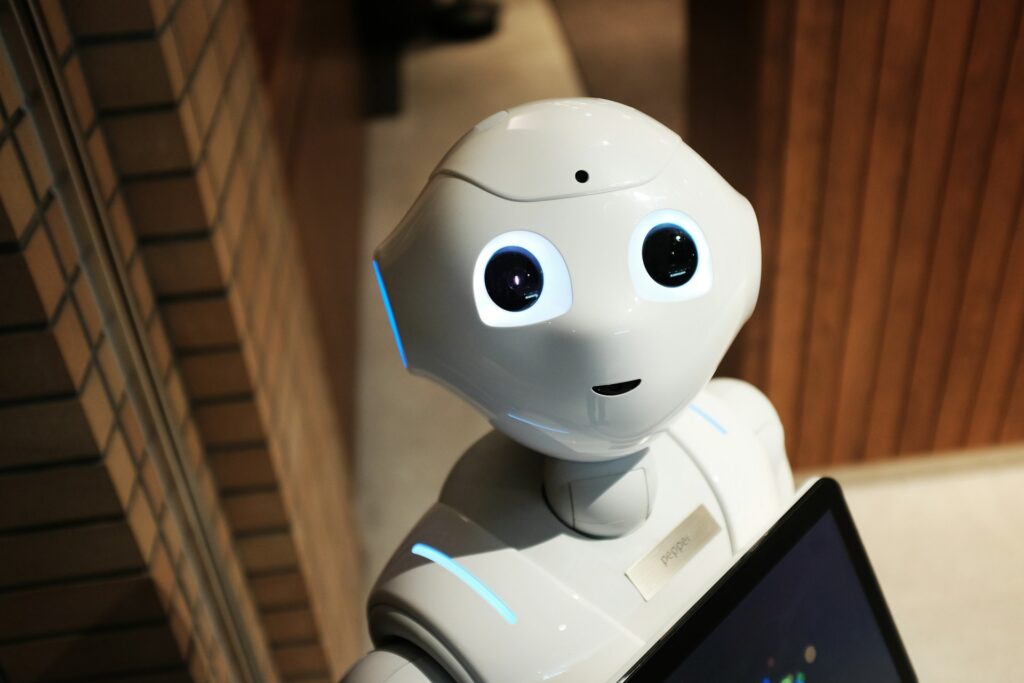Introduction:In an era defined by rapid technological advancement, innovation is the cornerstone of progress. From artificial intelligence to renewable energy solutions, Tech Innovations continue to redefine the boundaries of what’s possible. In this article, we’ll delve into ten groundbreaking innovations that promise to transform industries and shape our future landscape.
Tech Innovations: Pioneering the Future
Quantum Computing: Unlocking Unprecedented Computing Power
Quantum Computing represents a paradigm shift in computational capabilities, leveraging the principles of quantum mechanics to perform calculations at unparalleled speeds. With the potential to revolutionize fields like cryptography, drug discovery, and optimization problems, quantum computers hold the key to solving complex problems that are currently intractable for classical computers.
Autonomous Vehicles: Redefining Transportation
Autonomous Vehicles, powered by cutting-edge artificial intelligence and sensor technologies, are poised to revolutionize the way we commute and transport goods. From self-driving cars to autonomous delivery drones, these vehicles promise to enhance safety, reduce congestion, and usher in a new era of mobility.
Blockchain Technology: Decentralizing Systems and Empowering Individuals
Blockchain Technology, renowned for its immutable and transparent ledger system, is reshaping industries beyond cryptocurrency. From supply chain management to digital identity verification, blockchain offers secure and efficient solutions that foster trust and decentralization.
Augmented Reality (AR) and Virtual Reality (VR): Transforming Experiences
Augmented Reality and Virtual Reality technologies are blurring the lines between the physical and digital worlds, offering immersive experiences across various domains, including gaming, education, and healthcare. With AR glasses and VR headsets becoming increasingly accessible, the possibilities for interactive storytelling and experiential learning are endless.
Gene Editing: Revolutionizing Healthcare and Beyond
Gene Editing technologies, such as CRISPR-Cas9, are empowering scientists to edit DNA with unprecedented precision, opening new avenues for treating genetic disorders, combating infectious diseases, and enhancing agricultural productivity. The potential of gene editing to reshape healthcare and address global challenges is immense.
Renewable Energy Solutions: Fostering Sustainability
Renewable Energy Solutions, including solar, wind, and hydroelectric power, are driving the transition towards a sustainable future. With advancements in energy storage and grid integration, renewable sources offer clean, reliable alternatives to fossil fuels, mitigating climate change and reducing dependency on finite resources.
3D Printing: Revolutionizing Manufacturing
3D Printing, also known as additive manufacturing, is transforming the way products are designed and produced. From customized prosthetics to architectural models, 3D printing enables rapid prototyping and on-demand manufacturing, streamlining production processes and fostering innovation across industries.
Artificial Intelligence in Healthcare: Enhancing Diagnosis and Treatment
Artificial Intelligence is revolutionizing healthcare delivery, offering insights from vast amounts of patient data and accelerating diagnostic processes. Machine learning algorithms can analyze medical images, predict disease outcomes, and personalize treatment plans, leading to improved patient outcomes and more efficient healthcare delivery.
Space Exploration Technologies: Pushing the Boundaries of Exploration
Space Exploration Technologies, spearheaded by companies like SpaceX and NASA, are pushing the boundaries of human exploration and expanding our understanding of the cosmos. From reusable rocket systems to ambitious missions to Mars, these endeavors inspire awe and pave the way for humanity’s future among the stars.
Internet of Things (IoT): Connecting the World
The Internet of Things ecosystem, comprising interconnected devices and sensors, is transforming industries and everyday life. From smart homes to industrial automation, IoT technology enables real-time data collection, analysis, and decision-making, enhancing efficiency, convenience, and safety.
(FAQs)
How do Quantum Computers work, and what makes them different from classical computers?
Quantum Computers leverage quantum bits, or qubits, which can represent multiple states simultaneously, enabling parallel computation and exponential speedups for certain algorithms. This differs from classical computers, which process information using bits that can only be in one state at a time.
Are Autonomous Vehicles safe for widespread adoption?
Autonomous Vehicles undergo rigorous testing and validation processes to ensure safety and reliability. While challenges remain, advancements in AI and sensor technologies continue to enhance the capabilities and safety of autonomous systems.
What are the ethical implications of Gene Editing technologies?
Gene Editing raises ethical concerns surrounding issues such as genetic enhancement, unintended consequences, and equitable access to emerging therapies. Ethical frameworks and regulations are crucial for ensuring responsible and equitable use of gene editing technologies.
How can Blockchain technology benefit supply chain management?
Blockchain technology offers transparency, traceability, and immutability, making it ideal for supply chain management applications. By recording transactions on a decentralized ledger, blockchain enhances accountability, reduces fraud, and streamlines supply chain operations.
What role does Artificial Intelligence play in personalized healthcare?
Artificial Intelligence analyzes large datasets to identify patterns and insights that inform personalized healthcare interventions. By integrating patient data with predictive analytics, AI enables tailored treatment plans and proactive disease management strategies.
How can 3D Printing revolutionize the construction industry?
3D Printing enables the rapid prototyping and fabrication of complex structures, reducing material waste and construction time. From architectural models to building components, 3D printing offers cost-effective solutions for construction projects of all scales.
Conclusion
As we stand on the cusp of a new technological frontier, the possibilities are limitless. From quantum computing to renewable energy solutions, Tech Innovations are driving progress and shaping our collective future with the help of Tech Innovations. By embracing innovation and leveraging technology responsibly, we can navigate the challenges ahead and build a brighter tomorrow.

